NOTICES
Peer Groups, Peer Group Medians; and Peer Group Prices for General Nursing Facilities, County Nursing Facilities, Hospital-Based Nursing Facilities and Special Rehabilitation Facilities
[39 Pa.B. 2404]
[Saturday, May 9, 2009]The purpose of this notice is to announce the Department of Public Welfare's (Department) peer groups, peer group medians and peer group prices for general nursing facilities, county nursing facilities, hospital-based nursing facilities and special rehabilitation facilities under 55 Pa. Code § 1187.95(a)(4) (relating to general principles for rate and price setting). The Department used the peer groups, peer group medians and peer group prices to determine case-mix rates for nonpublic nursing facilities for the State Fiscal Year (FY) July 1, 2008 through June 30, 2009. The Department calculated the peer groups, peer group medians and peer group prices announced in this notice in accordance with 55 Pa. Code Chapter 1187 (relating to nursing facility services) as amended at 35 Pa.B. 4612 (August 13, 2005). The data that the Department used to determine the peer group medians and prices is available on the Office of Medical Assistance Programs' web site at: http://www.dpw.state.pa.us/ PartnersProviders/MedicalAssistance/DoingBusiness/LTCCaseMixInfo/.
To establish the database for the calculation of peer group medians and prices, the Department used each nursing facility's three most recent audited cost reports that were issued by the Department on or before March 31, 2008, and indexed the costs for each report forward to the common date of December 31, 2008, using the CMS Nursing Home Without Capital Market Basket Index.
The following is a listing, by group, of the number of nursing facilities with a particular year-end, and the inflation factor used to roll the costs of each facility forward to the common date of December 31, 2008.
GENERAL AND COUNTY NURSING FACILITIES
Facility Year End Number of Facilities* Inflation Factor June 30, 2002 3 1.2417 December 31, 2002 20 1.2111 June 30, 2003 26 1.1960 December 31, 2003 319 1.1812 June 30, 2004 237 1.1636 December 31, 2004 358 1.1466 June 30, 2005 228 1.1285 December 31, 2005 350 1.0990 June 30, 2006 227 1.0831 December 31, 2006 31 1.0689
HOSPITAL-BASED NURSING FACILITIES
Facility Year End Number of Facilities* Inflation Factor June 30, 2003 2 1.1960 June 30, 2004 16 1.1636 June 30, 2005 16 1.1285 June 30, 2006 14 1.0831
SPECIAL REHABILITATION FACILITIES
Facility Year End Number of Facilities* Inflation Factor December 31, 2003 3 1.1812 June 30, 2004 4 1.1636 December 31, 2004 2 1.1466 June 30, 2005 5 1.1285 December 31, 2005 2 1.0990 June 30, 2006 5 1.0831 * As a result of using the three most recent audited cost reports, the ''Number of Facilities'' column reflects a number in excess of actual enrolled nursing facilities.
After the database was inflated using the inflation values, the Department grouped the facilities in the correct geographic and bed size groupings. In accordance with 55 Pa. Code § 1187.94 (relating to peer grouping for price setting), to establish peer groups, the Department used the Metropolitan Statistical Areas (MSA) group classification published in the Federal Office of Management and Budget Bulletin No. 99-04 (relating to revised statistical definitions of Metropolitan Areas and guidance on uses of Metropolitan Area definitions) to classify each nursing facility into one of three MSA groups or one non-MSA group. The Department then used the bed complement of the nursing facility on the final day of the reporting period of the most recent audited MA-11 used in the Nursing Information System database to classify nursing facilities into one of three bed complement groups. These groups are 3--119 beds, 120--269 and 270 beds and over. Peer groups 7 and 10 have been collapsed in accordance with § 1187.94(1)(iv). Peer group 13 is designated for special rehabilitation facilities only and peer group 14 is designated for hospital-based nursing facilities only, regardless of geographic location or bed-size.
After the database was established and the peer groups determined, the Department then calculated the medians and prices for each peer group. To calculate the resident care cost medians, the Department divided the audited allowable resident care costs for each cost report by the total facility case-mix index from the available February 1 picture date closest to the midpoint of the cost report period to obtain case-mix neutral total resident care cost for the cost report year. The Department then divided the case-mix neutral total resident care cost for each cost report by the total audited actual resident days for the cost report year to obtain the case-mix neutral resident care cost per diem for the cost report year. The Department calculated the 3-year arithmetic mean of the case-mix neutral resident care cost per diem for each nursing facility to obtain the average case-mix neutral resident care cost per diem of each facility. The Department arrayed the average case-mix neutral resident care cost per diem for each nursing facility within the respective peer groups and determined a median for each peer group.
To calculate the other resident care cost medians, the Department first divided the audited allowable other resident care costs for each cost report by the total audited actual resident days for the cost report year to obtain the other resident related cost per diem for the cost report year. The Department calculated the 3-year arithmetic mean of the other resident related cost for each nursing facility to obtain the average other resident related cost per diem of each facility. The Department arrayed the average other resident related cost per diem for each nursing facility within the respective peer groups and determined a median for each peer group.
To calculate the administrative cost medians, the Department adjusted, as appropriate, the total audited actual resident days for each cost report to a minimum 90% occupancy in accordance with 55 Pa. Code § 1187.23 (relating to nursing facility incentives and adjustments). The Department then divided the audited allowable administrative cost for each cost report by the total audited actual resident days, adjusted to 90% occupancy, if applicable, to obtain the administrative cost per diem for the cost report year. The Department calculated the 3-year arithmetic mean of the administrative cost for each nursing facility to obtain the average administrative cost per diem of each facility. The Department arrayed the average administrative cost per diem for each nursing facility within the respective peer groups to determine a median for each peer group.
After the medians were determined for each peer group, the Department set prices using the medians. To set peer group prices, the Department multiplied the resident care cost median of each peer group by 1.17 to obtain the resident care cost peer group price; multiplied the other resident related cost median of each peer group by 1.12 to obtain the other resident related peer group price; and, multiplied the administrative cost median of each peer group by 1.04 to obtain the administrative cost peer group price.
The peer groups, peer group medians and peer group prices of general and county nursing facilities, hospital-based and special rehabilitation nursing facilities for Year 13 are listed in Annex A.
A Medical Assistance nursing facility provider may file an administrative appeal if the provider believes that the Department made any errors or the provider otherwise disagrees with the Year 13 peer group prices that the Department established for its peer group. A provider's appeal must be sent in writing to the Department's Bureau of Hearings and Appeals, P. O. Box 2675, Harrisburg, PA 17105, and received by the Bureau of Hearings and Appeals within 30 days of the date of this notice. If a provider chooses to appeal, the provider will be afforded the opportunity for a de novo hearing before the Bureau of Hearings and Appeals. The peer group prices applied in setting the provider's rates may be changed as a result of the final adjudication of the provider's peer group price appeal. Providers should refer to 67 Pa.C.S. Chapter 11 (relating to medical assistance hearings and appeals), and to the Department's regulations at 55 Pa. Code Chapter 41 (relating to medical assistance provider appeal procedures), for more detail regarding their appeal rights and the requirements related to their written appeals.
Fiscal Impact
The fiscal impact associated with this change is estimated to be $15.387 million ($5.982 million in State funds) for FY 2008-2009.
Public Comment
Interested persons are invited to submit written comments regarding this notice to the Department at the following address: Department of Public Welfare, Office of Long-Term Living, Attention: Gail Weidman, P. O. Box 2675, Harrisburg, PA 17105.
Persons with a disability who require an auxiliary aid or service may submit comments using the Pennsylvania AT&T Relay Service at (800) 654-5984 (TDD users) or (800) 654-5988 (voice users).
ESTELLE B. RICHMAN,
SecretaryFiscal Note: 14-NOT-596. (1) General Fund:
(2) Implementing Year 2008-09 is $5,982,000 (3) 1st Succeeding Year 2009-10 is $6,525,000 2nd Succeeding Year 2010-11 is $6,525,000 3rd Succeeding Year 2011-12 is $6,525,000 4th Succeeding Year 2012-13 is $6,525,000 5th Succeeding Year 2013-14 is $6,525,000 (4) 2007-08 Program-- $692,585,000 2006-07 Program-- $695,279,000 2005-06 Program-- $817,890,000 (7) Long-Term Care; (8) recommends adoption. Funds have been included in the budget to cover this increase.
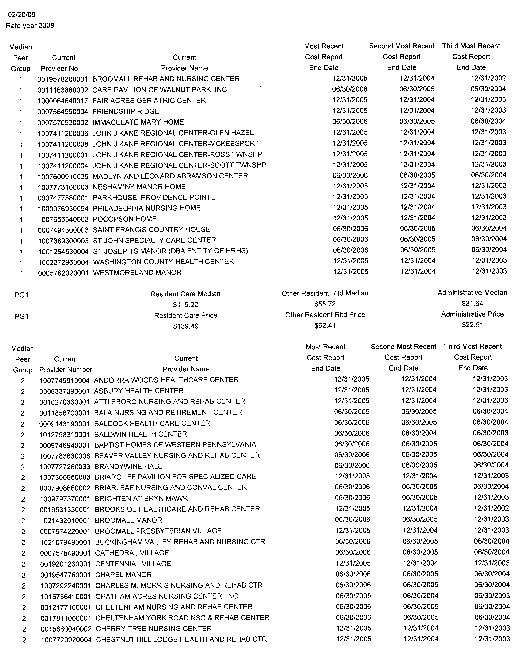
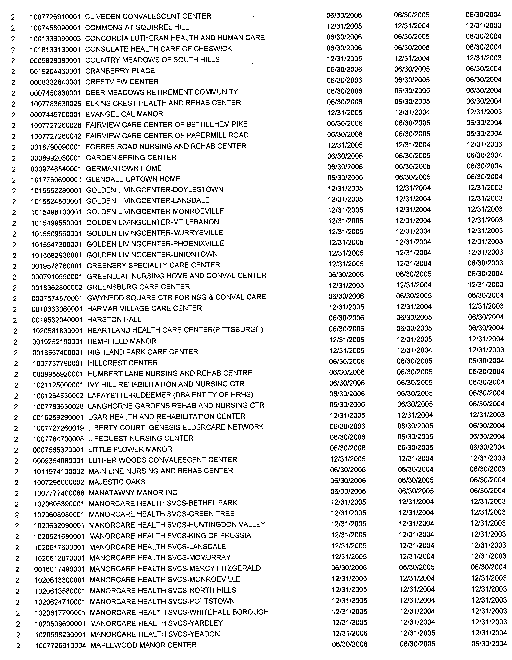
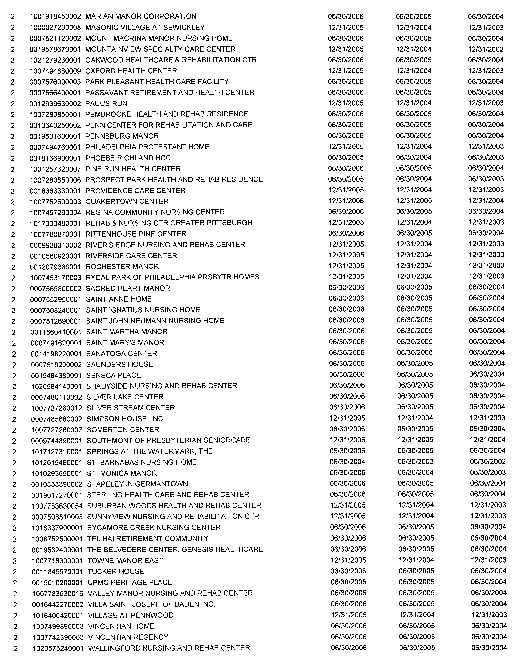
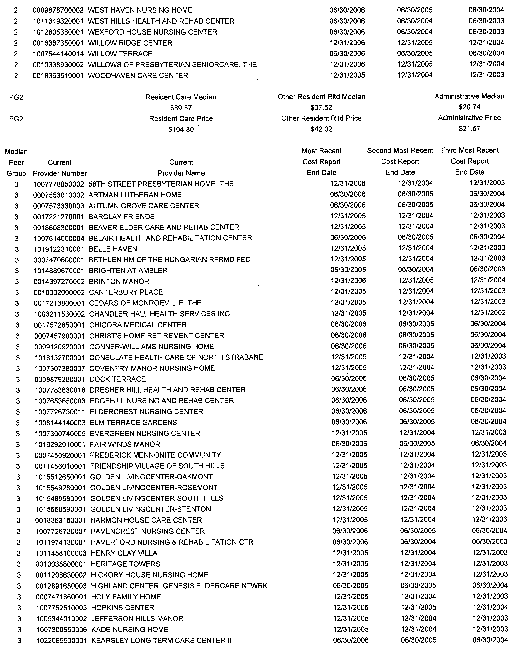
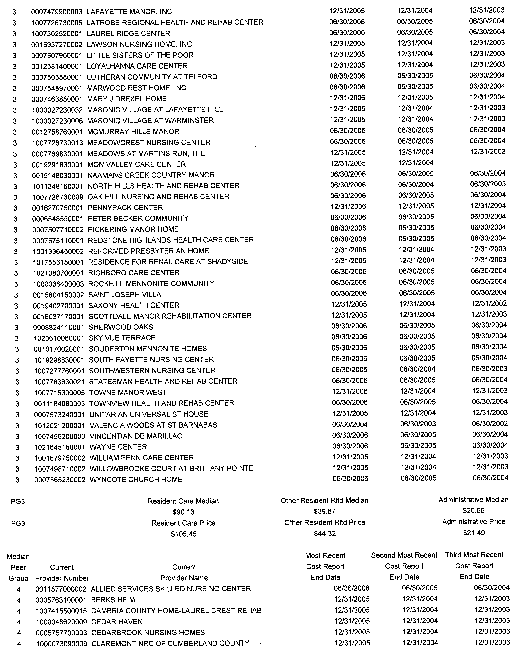
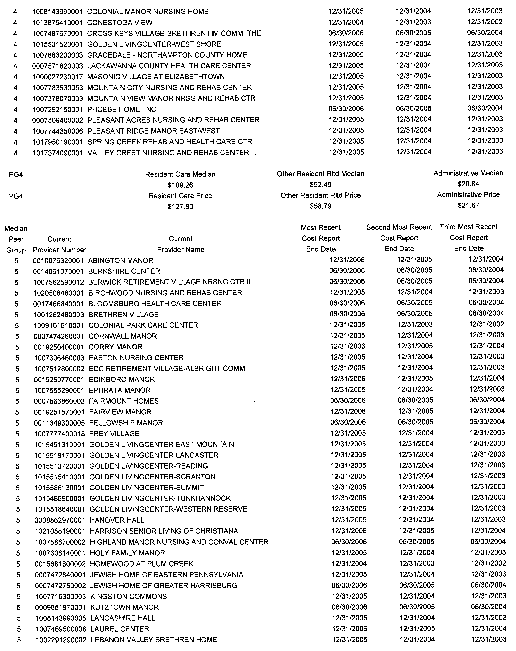
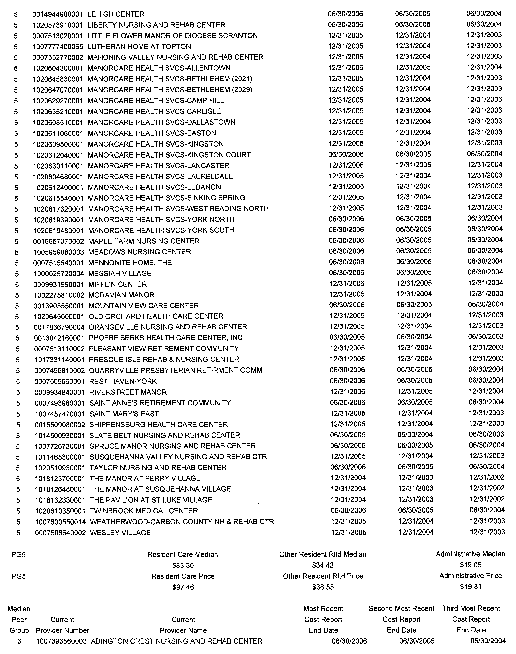
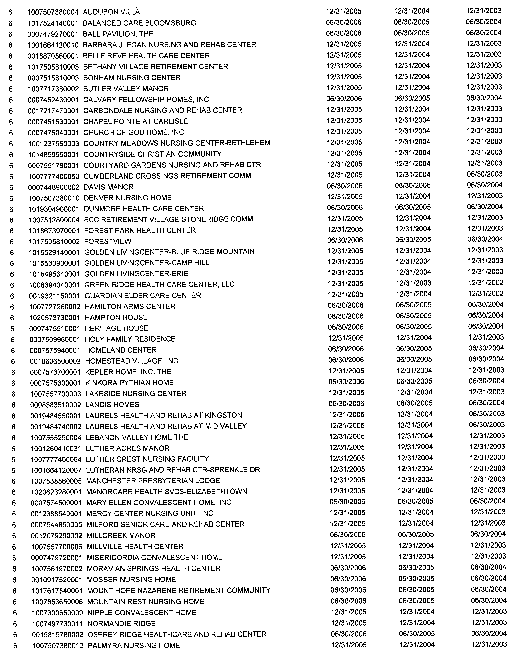
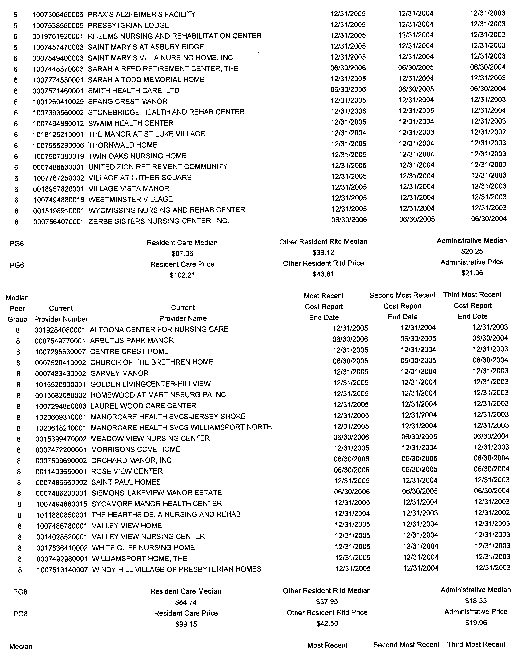
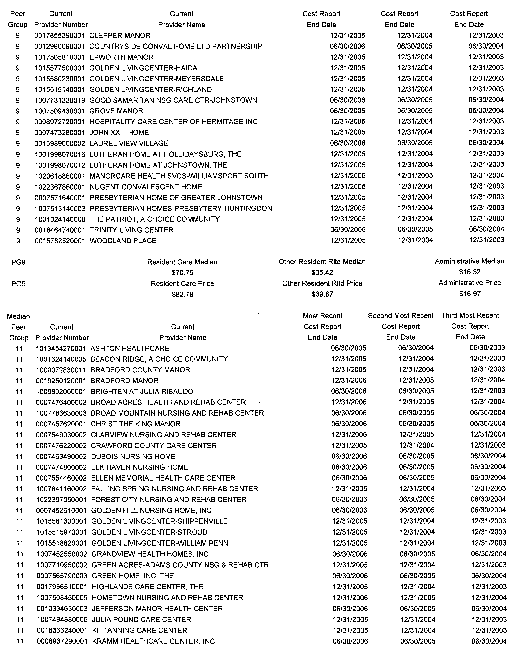
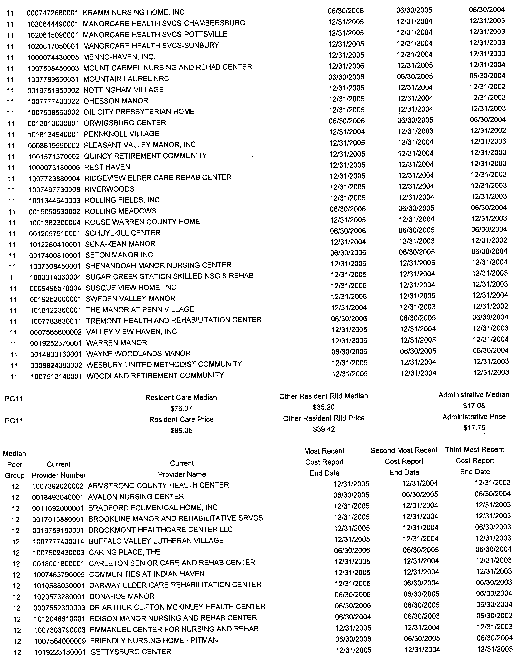
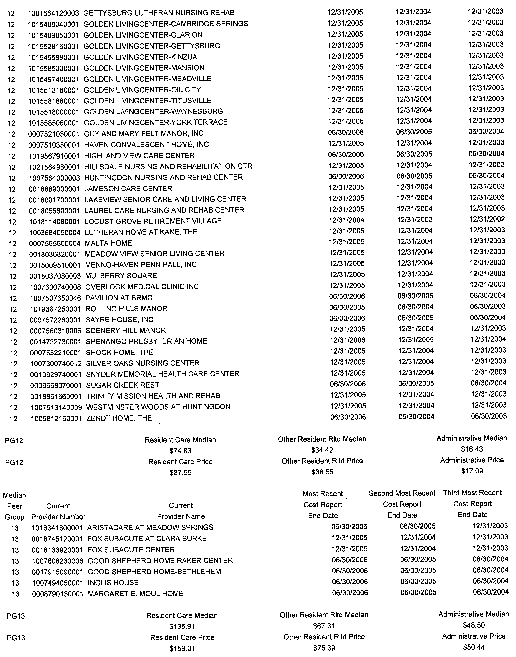
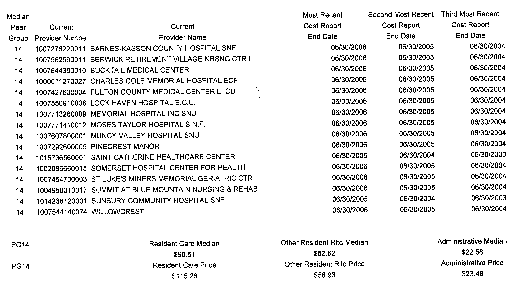
[Pa.B. Doc. No. 09-856. Filed for public inspection May 8, 2009, 9:00 a.m.]
No part of the information on this site may be reproduced for profit or sold for profit.This material has been drawn directly from the official Pennsylvania Bulletin full text database. Due to the limitations of HTML or differences in display capabilities of different browsers, this version may differ slightly from the official printed version.